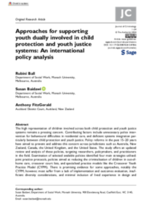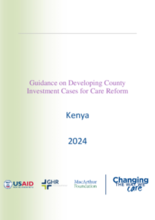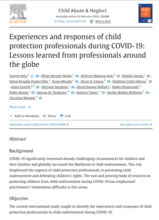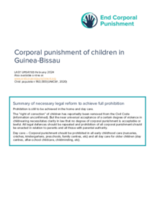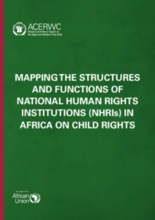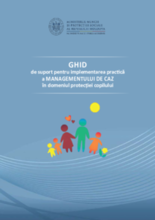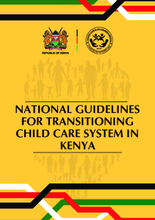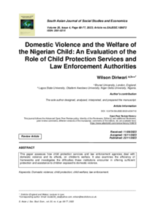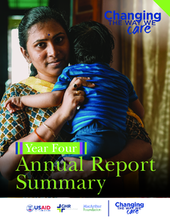Displaying 101 - 110 of 1025
This study offers an updated review and analysis of policy reforms across both the child protection and youth justice systems in jurisdictions such as Australia, New Zealand, Canada, the United Kingdom, and the United States, targeting researchers, policymakers, and practitioners in the field.
The objective of this guidance is to provide a ‘how-to’ guide on developing a county-level investment case for care reform in Kenya.
The current international study sought to identify the experiences and responses of child protection professionals to child maltreatment during COVID-19.
This is a corporal punishment country report for Guinea-Bissau. While prohibition of corporal punishment is still to be achieved in the home and day care, the Child Protection Code 2021 of Guinea-Bissau prohibits corporal punishment in alternative care settings, schools and in penal institutions.
ACERWC released a study on the structures and functions of NHRIs on child protection to assess how child rights issues are incorporated in their mandates. The study identifies challenges and proposes areas to strengthen collaboration.
The Regional Learning Platform on care reform for Eastern and Southern Africa provides an opportunity for government, UNICEF and others involved in care reform
Ghidul de suport pentru implementarea practică a Managementului de caz în domeniul protecției copilului este destinat angajaților structurilor teritoriale de asistență socială.
These national guidelines provide a roadmap of activities to guide the state and non-state actors in Kenya to streamline the transitioning of care systems, children and institutions in the country.
This paper aims to contribute to an understanding of how Child Protection Services and Law Enforcement Agencies in Nigeria can combat domestic violence against children. It seeks to provide recommendations, on strengthening these entities as other important stakeholders involved in preventing detecting, responding to, and protecting children from domestic violence.
Changing the Way We Care (CTWWC) promotes safe, nurturing family care for children reintegrating from residential care facilities (often referred to as “orphanages”) and prevents child-family separation by strengthening families, reforming national systems of care for children, and working to shift donor and volunteer support away from residential care and toward family care alternatives.

